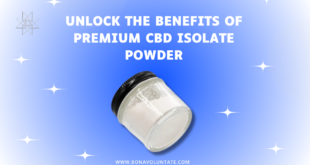In today’s highly competitive and digitally-driven marketplace, businesses need to create cohesive and consistent messaging across all channels to reach their audience effectively. Whether through digital, print, social media, or in-person interactions, customers expect a seamless experience with your brand. This is where integrated marketing solutions come into play. Integrated marketing solutions combine different promotional tools and strategies to deliver a unified brand message across multiple platforms. In this guide, we’ll explore what integrated marketing solutions are, why they matter, and how businesses can leverage them to drive growth and build stronger customer relationships.
What Are Integrated Marketing Solutions?
Integrated marketing solutions involve the coordination of various marketing channels—both online and offline—to create a consistent and unified brand message. Rather than approaching each channel in isolation, integrated marketing ensures that all aspects of your marketing strategy work together harmoniously. From your website and social media campaigns to email marketing and traditional advertising, integrated marketing solutions focus on delivering a cohesive brand experience that resonates with your target audience.
By integrating your marketing efforts, you ensure that customers receive the same message, values, and brand identity, regardless of where they interact with your business. This not only reinforces brand recognition but also builds trust and loyalty.
Why Integrated Marketing Solutions Are Essential for Modern Businesses
- Consistency Across All Channels
Consistency is key to building brand recognition and trust. Integrated marketing ensures that your messaging, tone, and visual identity are consistent across all touchpoints—whether it’s your social media posts, print ads, or website content. This consistency reinforces your brand’s presence in the minds of consumers, leading to stronger brand loyalty and improved customer retention. - Better ROI Through Synergy
When your marketing channels are aligned and working together, they amplify each other’s effectiveness. For example, a social media campaign promoting a new product can drive traffic to your website, where visitors are greeted with consistent messaging that aligns with your email newsletters and in-store promotions. This synergy creates a multiplier effect, maximizing your return on investment (ROI) and ensuring that each marketing dollar goes further. - Improved Customer Experience
Today’s customers engage with brands across multiple platforms, often switching between online and offline channels. Integrated marketing solutions focus on creating a seamless customer journey, providing consistent information, offers, and brand interactions regardless of where the customer is in the buying process. A positive and cohesive customer experience leads to higher engagement, better conversion rates, and stronger customer satisfaction. - Data-Driven Insights for Continuous Improvement
Integrated marketing solutions leverage data from various channels to provide comprehensive insights into customer behavior, preferences, and buying patterns. By consolidating this data, you can make informed decisions and adjust your strategy in real-time. The ability to analyze and adapt quickly allows businesses to optimize campaigns, target the right audience, and stay ahead of competitors. - Streamlined Strategy and Execution
Integrated marketing solutions bring together your entire marketing strategy under one cohesive plan. Instead of managing separate campaigns for each channel, you develop a unified strategy that guides all your efforts. This streamlined approach reduces redundancy, minimizes resource wastage, and improves overall efficiency in executing campaigns.
Key Components of Integrated Marketing Solutions
- Brand Messaging and Positioning
At the heart of any integrated marketing strategy is a clear and consistent brand message. Your brand’s values, mission, and unique selling propositions (USPs) should be the foundation of all marketing efforts. Defining your brand’s voice, tone, and visual identity ensures that every piece of content—whether it’s a blog post, social media ad, or email newsletter—communicates the same core message. - Omnichannel Marketing Strategy
An omnichannel strategy is crucial for integrated marketing. This approach involves delivering a consistent message across multiple channels, including social media, email, search engines, paid ads, print media, and more. It’s not just about being present on multiple platforms—it’s about ensuring that each channel works together to create a cohesive customer experience. - Content Marketing and Storytelling
Content marketing plays a vital role in integrated marketing solutions. By creating compelling content that tells your brand’s story and addresses customer needs, you can engage your audience across different platforms. From blog posts and videos to infographics and whitepapers, each piece of content should align with your overall brand strategy while addressing the specific interests of your target audience. - Data Integration and Analytics
To achieve a fully integrated marketing strategy, data integration is essential. By collecting and analyzing data from various channels, you can gain a holistic view of your customers and their interactions with your brand. Tools like Google Analytics, CRM software, and marketing automation platforms can help you track customer journeys, measure campaign effectiveness, and refine your strategy based on real-time insights. - Cross-Channel Campaign Management
Managing campaigns across different channels can be challenging without the right tools and processes. Integrated marketing solutions involve using software that enables seamless campaign management and coordination. Marketing automation tools, project management software, and cross-channel advertising platforms allow you to schedule, track, and measure campaigns from a single dashboard, ensuring consistency and alignment across all channels. - Personalization and Customer Segmentation
Personalization is a key element of modern integrated marketing strategies. By segmenting your audience based on demographics, behaviors, and preferences, you can tailor your messaging to meet the specific needs of different customer groups. Integrated marketing allows you to deliver personalized experiences across channels, from targeted email campaigns to personalized website content and social media ads.
How to Implement Integrated Marketing Solutions
- Define Your Objectives and Goals
Before diving into integrated marketing, clearly define your business objectives and marketing goals. Are you looking to increase brand awareness, drive more traffic, generate leads, or boost sales? Understanding your goals will guide your strategy and help you measure success. - Develop a Unified Marketing Strategy
Create a comprehensive plan that outlines how your marketing channels will work together to achieve your objectives. This strategy should include your brand messaging, content plan, and key performance indicators (KPIs) for each channel. Ensure that all stakeholders are aligned and understand their roles in executing the strategy. - Leverage Marketing Technology and Tools
Invest in the right tools to support your integrated marketing efforts. Marketing automation platforms, CRM systems, analytics tools, and content management systems (CMS) are essential for coordinating campaigns, tracking performance, and managing customer interactions. Integrating these tools ensures that your data flows seamlessly across channels, providing valuable insights for decision-making. - Create Consistent and Engaging Content
Content is the backbone of any integrated marketing strategy. Focus on creating high-quality, relevant content that resonates with your audience while maintaining consistency in tone, style, and messaging. From blog posts and social media updates to email newsletters and video content, ensure that every piece of content aligns with your brand’s identity. - Measure, Analyze, and Optimize
An integrated marketing strategy requires continuous monitoring and optimization. Use data analytics to track the performance of your campaigns across all channels. Analyze metrics like engagement rates, conversion rates, and ROI to identify areas for improvement. Regularly review your strategy and make adjustments based on the insights you gather to ensure your marketing efforts remain effective and aligned with your goals.
Top Benefits of Working with an Integrated Marketing Agency
If managing integrated marketing solutions in-house seems overwhelming, partnering with an experienced marketing agency can provide significant advantages:
- Expertise Across Channels: Integrated marketing agencies have specialized teams that excel in different areas, from digital marketing and content creation to branding and analytics.
- Resource Efficiency: Agencies offer the manpower, tools, and resources needed to execute large-scale campaigns, allowing your business to focus on core activities.
- Scalability: As your business grows, an integrated marketing agency can scale efforts accordingly, ensuring consistent results across all channels.
- Data-Driven Strategies: Agencies use advanced analytics to fine-tune campaigns and deliver measurable results that align with your business objectives.
Conclusion
Integrated marketing solutions are essential for businesses looking to create a unified brand presence in today’s multi-channel environment. By aligning your marketing efforts and delivering consistent, engaging messages across all platforms, you can build stronger relationships with your customers, drive growth, and maximize ROI. Whether you’re a small business or a large enterprise, implementing an integrated marketing strategy can set you apart from the competition and help you achieve your business goals. Start by defining your objectives, developing a comprehensive strategy, and leveraging the right tools and expertise to execute campaigns that resonate with your audience and deliver results.
 Personal Finance and Attractive Interest Rates Unlock Smart Savings with Low Rates and Expert Financial Tips
Personal Finance and Attractive Interest Rates Unlock Smart Savings with Low Rates and Expert Financial Tips







